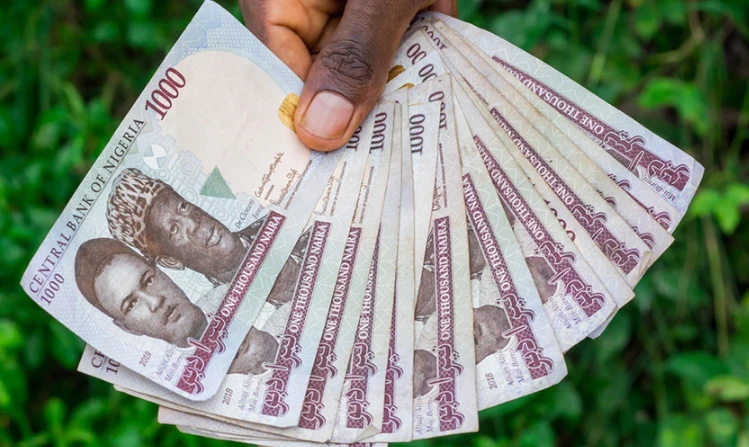Traders in Maiduguri in Borno State have expressed dismay about the cash withdrawal policy put in place by the Central Bank of Nigeria (CBN), which allows individuals to withdraw a maximum of ₦100,000 and corporates ₦500,000 a week.
The daily withdrawal rate for individuals is ₦20,000.
Citizens can make these withdrawals from Deposit Money Banks and other financial institutions, including over-the-counter bank cash withdrawals, and at automatic teller machines (ATMs).
The regulatory directive will take effect nationwide on January 9.
Small traders emphasised that the CBN’s cash withdrawal limit would affect their businesses negatively and they have called on the government to review the new policy.
Mohammed Bashir Mala, a trader in Maiduguri, told RNI that the cash withdrawal policy might help to curtail corruption within institutions, departments and agencies of government.
“But,” he said, “it will really affect small traders like us and our business activities, especially those traders in rural areas because some do not have a bank account and they prefer to conduct their business activities in cash. Most rural and remote towns do not even have a bank.
“So, when this policy starts working, many traders will face difficulties and many business activities will crumble. Withdrawing only ₦20,000 a day will really affect our business activities because sometimes we conduct our business with cash amounting to more than ₦2 million. Now this new policy will not allow us to have so much cash. If you have to withdraw more than ₦20,000, then 5% of your money will be deducted. But we heard that the policy will allow individuals to conduct cashless transactions without any penalty.
“We are appealing to the government to review the cash withdrawal limit in a way that will favour both rural and urban dwellers without affecting business activities.”
Fatima Adam said: “I was not even aware of the cash withdrawal policy until I received a call from someone telling me that the CBN had introduced new regulations about the amount of money that can be withdrawn per day. The new policy will apply at ATM machines, over-the-counter bank withdrawals and at any point-of-sale operators.
“The new limit that allows people to withdraw a maximum of only ₦20,000 a day will definitely affect our business activities because people will not have enough money on hand to buy commodities. This will mean a decline in customers and poor patronage.
“However, most people are not aware of this new cash withdrawal policy. I think the government should review the policy and create more awareness about the new cash limits, especially in the rural areas.”
Jidda Abdulaziz Ajayi, a senior lecturer at the economics department at the University of Maiduguri, told RNI that the introduction of the cash withdrawal policy by the CBN had a lot of advantages and disadvantages.
“It will increase the value of the naira currency by reducing high inflation and that will drive rapid economic growth. The policy will also drastically reduce the misappropriation of funds and corruption by politicians during and after next year’s elections. So, the policy is good in some cases but the timing is wrong. Nigeria is experiencing an economic crisis and the cost of living has risen dramatically. Most people are struggling to keep food on the table.
“The policy will affect traders and their businesses badly because most of them conduct their business activities on a cash-only basis. So, the new policy will be extremely difficult and challenging for traders who deal in cash for commodities worth more than ₦300,000 to ₦400,000 and sometimes even millions of naira.
“If they are able to withdraw only ₦20,000 a day, it’s going to be hard doing business. There are some traders who have not even been told about the new cash withdrawal policy. This will affect all traders but especially those in the rural areas, where there are no financial institutions or banks and where traders – and many of their customers – do not even have a bank account. In some areas there are only point-of-sale operators. This policy seems to target elite members of the society, such as government officials and politicians, but it will be the rural dwellers who will have the greatest problems and challenges.”
Ajayi said the government was supposed to have come up with a strategic way of introducing advanced technology in rural areas.
“They need to guide and inform rural dwellers about banking and finance, so that they will be able to keep up with e-commerce, the use of e-naira, as well as cashless transactions.
“I think the government needs to review the policy, taking into account the considerable challenges and problems small traders and rural people will face once the policy starts working.”
The CBN said the initiative sought to address excessive hoarding of cash, help to fight crime, give authorities control of the legal tender and encourage more people to use electronic means for their transactions.
The initiative allowed for a monthly withdrawal above specified limits but that carried a 5% processing fee for individuals and 10% for corporate entities.
News agency Reuters said the majority of Nigerians had no bank accounts and used informal markets where cash was preferred.
Authorities were trying to stamp out the payment of ransoms to armed gangs who kidnapped people and demanded millions of naira in cash, it said.
The announcement came after the CBN’s introduction of the newly designed banknotes of ₦200, ₦500 and ₦1,000. Citizens had until January 31 to turn in their old notes after which they would cease to be legal tender.
SHETTIMA LAWAN MONGUNO






